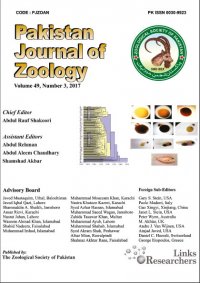ABSTRACT
The study was designed to evaluate the detrimental effects of dietary consumption of Banaspati ghee on renal function of mice. Two locally manufactured brand of Banaspati ghee daily to mice at a rate of 10% of their daily food intake for a period of 4 weeks. After 4 weeks, both male and female mice were sacrificed and kidneys were taken out. Biochemical parameters e.g., lipid peroxidation (LPO), catalase (CAT), glutathione-S-transferase (GST), reduced glutathione (GSH) were determined to evaluate oxidative stress while urea and creatinine, was used to evaluate kidney function. It was found that there was an increase in weight (p<0.05) of both males and female mice fed with diet containing ghee. Kidney LPO and CAT were significantly increased in both male and female mice. GSH level showed decreasing trend in female while increase was observed for male kidney. Creatinine level increased in both male and female experimental groups compared with control. In the light of present results, it was concluded that high daily intake of ghee available in market can cause damage to vital organs like kidney. In general female physiological system seems to be more prone to damage caused by these diets as compared to male physiological system.
To share on other social networks, click on any
share button. What are these?









